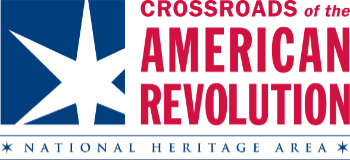Biography People
Joseph Moore Full Biography
I was born in Woodbridge Township (now Rahway) on January 9, 1732 into the family of Samuel and Mary Moore. My father’s family had come to Woodbridge about 1666 from Newbury, Massachusetts. My great grandfather, Samuel Moore, served in several government offices, including Treasurer of East Jersey. My father wanted me to go into a seafaring profession and at the age of sixteen I made a voyage on a ship serving as supercargo. As I approached adulthood, though, I decided that life at sea was not for me and became a farmer. On February 21, 1751, when I was just nineteen, I married Christiana Bishop. Although not from a Quaker family, on September 21, 1763 I was accepted into the Quaker meeting and in 1766 my family and I became members of the Kingwood Monthly Meeting when we settled in Amwell in Hunterdon County. My farm was nine miles from the Kingwood meetinghouse, so in 1771 I requested that monthly meetings be held at my house and this request was granted. Meetings at my home continued until 1786.
I became noted for my efforts to teach and comfort and was officially recommended as a minister in 1774. I promoted peace and harmony both within my church and the general community, although it had very few Quakers. I enjoyed being with people and greatly delighted in the company and conversation of my friends. People found me pleasant to be with and admired my upright life and exemplary conduct. Consequently, I developed an extensive acquaintance with people of all religious beliefs.
The onset of the American Revolution caused a number of difficulties for my family because of our Quaker belief in non-violence. My brother, Edward, lost considerable property in taxes and fines because of his anti-war principles. My brother, Samuel, developed a reputation as a Loyalist and went to live in New York City during the war. After the war he took refuge in Nova Scotia and eventually in Upper Canada. I also suffered because of my beliefs. Early in the war I refused, on religious principles, to swear allegiance to the State of New Jersey and reject the authority of the King of Great Britain. Because of this refusal I was arrested and confined in jail at Trenton for almost six weeks. When I still refused to take the loyalty test the court fined me the sum of fifty pounds and discharged me from confinement. The court confiscated two of my oxen and a mare as payment of the fine. The government also took another pair of oxen, two cows, a mare and a colt to pay for militia fines and a tax I refused to pay. In June 1779 the constable came to my house and took a horse valued at eighteen pounds, because I had refused to pay a tax levied to support the war for Independence. The tax was only fifteen pounds.
I continued to minister and work for peace after the war ended. In 1786 my dear friend, Abraham Gibbons, and I made a religious visit to Nova Scotia to visit with fellow Quakers living there. The tradition has developed that we travelled on foot to Nova Scotia, but there is no documentary evidence of this. The next year I made a second visit to Nova Scotia with donations from local Quakers to distribute amongst the poor there, some of whom were Loyalists who had relocated there during and after the war.
About 1791 there were conflicts between the new United States and some of the Northwest Territory Indian tribes about the extent of white settlement. We Quakers wanted to see the disputes settled peacefully. In 1792 a large Quaker committee was appointed to deliberate and make recommendations. When deputies from several Indian nations came to protest at Philadelphia in 1793 a meeting was called to convene near Detroit the following summer and the Indian representatives urged that Quakers should be included in this meeting. I was one of six Friends who accompanied the commissioners appointed by our government. On our way to this meeting I visited a number of families of Friends in nearby parts of Canada. The meeting unfortunately failed to resolve the issues and we set out to return home.
As we approached Philadelphia we heard alarming reports of yellow fever in the city, but we continued on. I attended Friends meetings in Philadelphia, but fatigue from my travels left me unable to resist the fever and I died on October 7, 1793 at age sixty-two. I was buried on my Amwell farm, but my neighbors were so fearful of the yellow fever that none ventured near the house. The undertaker left a coffin within sight of our house and my two daughters, with the aid of a colored man, prepared and buried my remains.
FURTHER SOURCES
Collections and Researches made by the Michigan Pioneer and Historical Society, vol 17, Lansing: 1892, 632-668.
Moore, James W., compiler, Records of the Kingwood Monthly Meeting of Friends. Hunterdon County, New Jersey, Flemington: H.E. Deats, 1900, 8, 9, 25, 26.
Shotwell, Ambrose M., Annals of Our Colonial Ancestors and Their Descendants; or, Our Quaker Forefathers and Their Posterity, Lansing: Ambrose Shotwell, 1895, 18-24.
